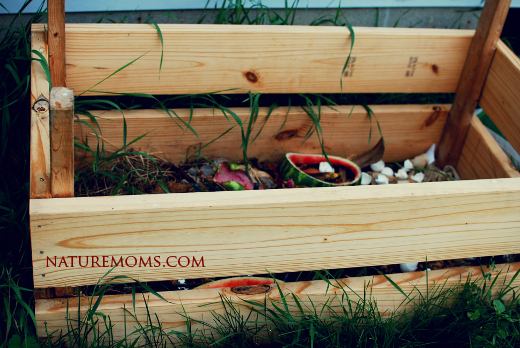 Did you know that it is International Compost Awareness Week? Say what? Yes we have a week dedicated to composting awareness and I think it very much warranted. There is so much misinformation out there about composting. I want to pull my hair out every time I hear someone say they want to compost but is smells bad, or it attracts rats to their pristine neighborhood. My bullshrimp meter skyrockets.
Did you know that it is International Compost Awareness Week? Say what? Yes we have a week dedicated to composting awareness and I think it very much warranted. There is so much misinformation out there about composting. I want to pull my hair out every time I hear someone say they want to compost but is smells bad, or it attracts rats to their pristine neighborhood. My bullshrimp meter skyrockets.
Composting is incredibly easy and it is incredibly important to do. A whopping 50% of landfill waste is compostable. That means 50% of what you throw out in the waste bin could instead be thrown into the compost pile to make a valuable product that our much depleted soil wants and needs. There are no good excuses for why you aren’t doing this…right this minute, in some form. If you have a yard, then a compost pile is easy to set up. I have two and building them took about 10 minutes each. If you live in an apartment or condo then an indoor setup, such as a worm bin can be used, I did this for years. We can all do something.
5 Composting Myths Debunked
Compost Smells Bad – This is an excuse most commonly used by folks in nicer neighborhoods and cities who don’t want the neighbors to see (or smell) an icky compost bin. I have composted for over ten years now. I have never once had an issue with smell. If you have an issue with smell you are doing something wrong and it can be fixed. A gooey, sludgy, wet compost pile may in fact smell and this means you need to balance it out and add more dried leaves and paper. You can also turn to allow air to circulate. You may also be putting things in the compost that should not go in it. Read my post about What Goes In A Compost Pile. A compost pile done right smells like dirt and dirt is nothing the neighbors can’t handle.
Composting is Complicated – No, it really isn’t. Dead things decay, that is the process of life. Those things will happen with or without you. All you are doing with compost is managing it. All you have to do is add roughly the same amount of carbon materials as you do nitrogen materials (50/50). That is all.
Composting Takes Too Much Time – I have two large compost piles. We compost the food waste and paper waste for a family of five, we have rabbit manure that we collect and compost, and we have over half an acre of yard waste. We spend maybe 10 minutes a week doing anything compost related. Tell me again how composting takes so much time?? Pfft! That is what I love about composting. It is almost effortless and the rewards are so great..aka a beautiful landscaped front yard and a large produce garden in the back…all nourished with rich, nutrient dense compost.
Here is my 10 minute compost plan:
- Put food scraps in compost buckets daily.
- Once full empty buckets in rubbish bin just outside the back door.
- Dump rabbit manure in rubbish bin
- Add yard waste to the rubbish bin
- Once full (or getting too heavy) dump the contents of the bin into the compost pile
- Once a month (maybe) turn the compost using a pitch fork.
- Easy peasy and and barely any time required at all.
You Need Lots of Space to Compost – No you really don’t. When we lived in an apartment we used an indoor worm bin. When we moved to a duplex we composted in a 2×6 wooden box that my husband built. Since we had no yard waste (or rabbits) it handled all of our food and paper waste and we borrowed the neighbor’s leaves when needed. They really didn’t mind. This is what we worked with back then and we had some darn good compost!
Now we have half an acre and much more room to work with but really we don’t use much space for composting, as you can see. Each bin is about 5-6 feet across and 4 feet deep.
Compost Bins Attract Animals and Bugs – Bugs, yes and that is to be expected and celebrated. Bugs helps the composting process along. They do not however create a haven for so many bugs that it impacts our life in some negative way. As for animals, well in ten years I have never noticed any animals getting into my compost, ever (and we have lots of wild animals in the area). I even use open air compost bins with food waste. I just make sure that I do not add foods on the no-compost list such as meat, fat, and dairy. I find that this myth is just another “excuse” for why composting cannot be done and it has no basis in truth.
What composting myths are you willing to let go of and give this whole composting things a try? I would love to know!





